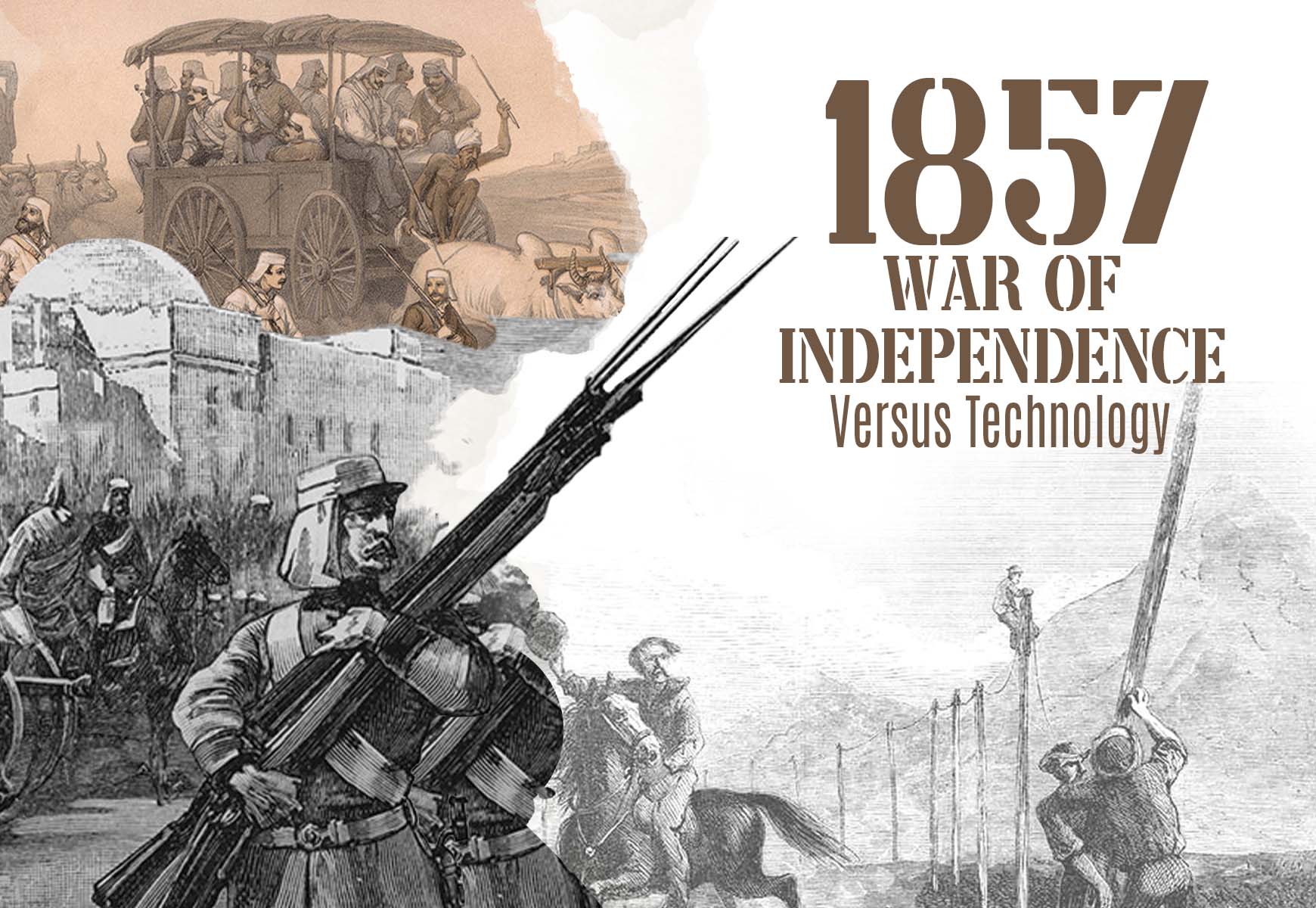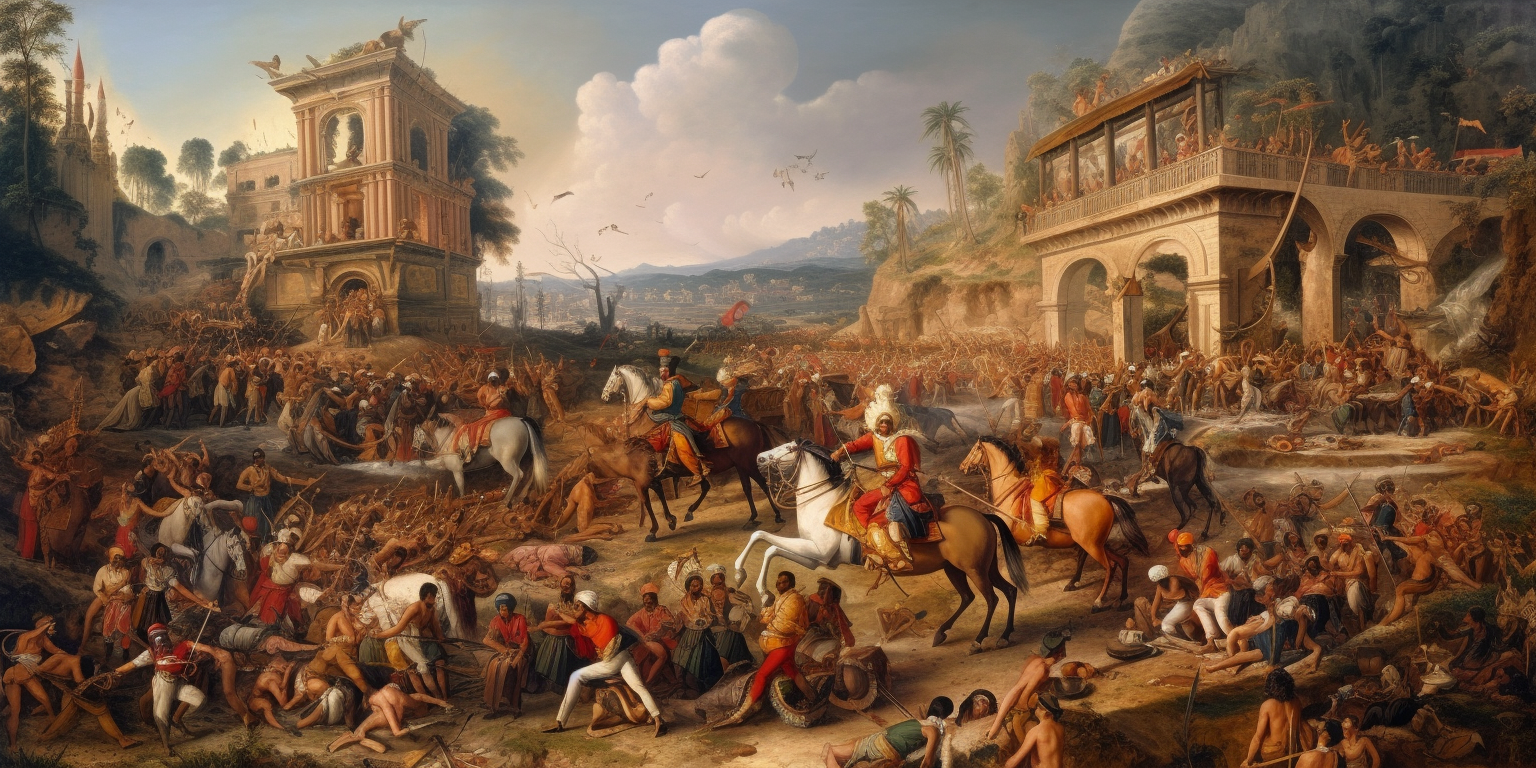The War of Independence: A Defining Struggle for Freedom
The War of Independence, often referred to as a struggle for freedom and sovereignty, is a pivotal moment in the history of many nations. This term has been used to describe various conflicts throughout history, each unique in its causes, consequences, and the nations involved. In this article, we will explore the concept of the War of Independence, examining its significance and impact on the nations that have experienced it.
The Revolt of 1857, often referred to as the Indian Mutiny or the First War of Independence, was a seminal event in the history of India and the British Empire.
Defining the War of Independence
A War of Independence is a military conflict in which a group of people within a region or colony seeks to break away from the rule of a foreign power or establish their own sovereign state. The reasons behind such a conflict are diverse and complex, ranging from political and economic oppression to cultural and ideological differences. Key elements typically include a struggle for self-determination, the establishment of a new government, and the assertion of national identity.
The Arab League, established in 1945, is a regional organization comprising 22 member states in the Arab world.
Key Examples of Wars of Independence
- The American War of Independence (1775-1783): The American War of Independence, also known as the American Revolutionary War, marked the Thirteen Colonies’ fight against British colonial rule. This war culminated in the United States’ emergence as an independent nation, with the adoption of the Declaration of Independence in 1776 and the Treaty of Paris in 1783. It was a watershed moment in the history of the United States, inspiring other independence movements around the world.
- The Indian Independence Movement (1857-1947): India’s struggle for independence from British colonial rule is another remarkable example. It was a multifaceted movement characterized by non-violent resistance, civil disobedience, and a quest for self-rule led by leaders like Mahatma Gandhi and Jawaharlal Nehru. India eventually gained its independence in 1947, forming the world’s largest democracy.
- The Irish War of Independence (1919-1921): The Irish War of Independence was a conflict between Irish republicans and British forces. It resulted in the Anglo-Irish Treaty of 1921, leading to the establishment of the Irish Free State and the eventual formation of the Republic of Ireland.
- The Algerian War of Independence (1954-1962): The Algerian War of Independence was a brutal conflict that marked Algeria’s struggle for independence from French colonial rule. The Algerian National Liberation Front (FLN) fought a protracted guerrilla war, ultimately leading to Algeria’s sovereignty in 1962.
Significance and Legacy
Wars of Independence hold immense historical, cultural, and political significance for the nations that experience them. They are often characterized by immense sacrifice and are instrumental in shaping a nation’s identity and destiny. These conflicts tend to foster a deep sense of nationalism and a collective memory of the struggle for freedom.
Furthermore, the legacy of such wars extends beyond national borders. They serve as inspirational models for other movements fighting for self-determination, liberty, and human rights. Leaders like George Washington, Mahatma Gandhi, and Ho Chi Minh became iconic figures, admired for their dedication to the cause of independence.
Conclusion
The War of Independence represents a powerful and enduring theme in the tapestry of human history. These conflicts serve as testaments to the indomitable spirit of people striving for self-determination, liberty, and the right to shape their own destinies. The profound impact of such wars reaches far beyond the borders of the nations involved, inspiring others to seek freedom and independence. They are a testament to the enduring human spirit and the unyielding pursuit of freedom.








